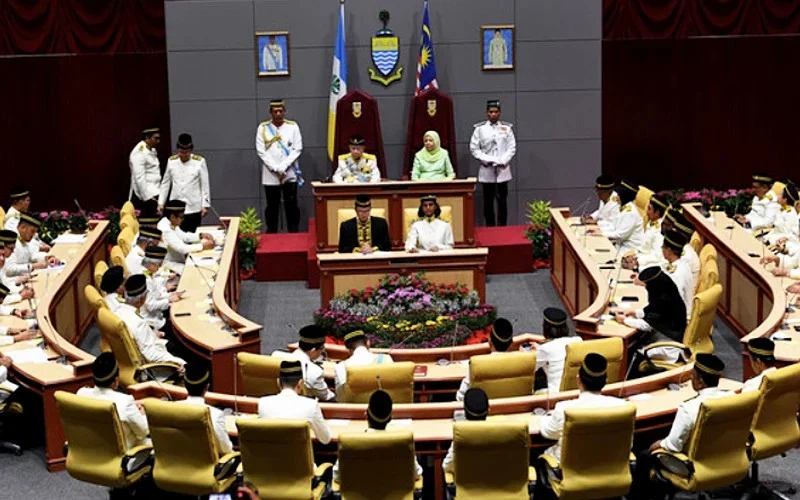
GEORGE TOWN: Perikatan Nasional (PN) made huge gains in the Penang state election on Saturday, winning 11 Malay majority seats on the back of a large number of votes from Umno supporters, says a political scientist.
PN won the predominantly Malay seats of Sungai Bakap, Penanti, Pinang Tunggal, Seberang Jaya, Permatang Berangan, Sungai Dua, Telok Bahang, Permatang Pasir, Pulau Betong, Telok Ayer Tawar and Penaga.
Seven of those seats were wrested from PKR, four from Umno, and one from Amanah.
Wong Chin Huat of Sunway University said that the “green wave” in Penang saw PN “absorbing” the majority of Umno votes, even to the detriment of Umno candidates who lost their voter base.
He also said the much hoped for transfer of Umno votes to PH did not happen, causing unity coalition partner parties PKR and Amanah to lose to PN.
The additional votes PKR and Amanah secured were much lower than the votes BN secured in the Malay constituencies at the 15th general elections, he said.
“The (best scenario) was in Bayan Lepas, where Amanah gained 3,360 more votes, which was only about 55% of votes from BN in GE15,” he told FMT.
Meanwhile, Azeem Fazwan Ahmad Farouk of Universiti Sains Malaysia said PN benefited from disquiet among the Malays about the poor socio-economic conditions faced by the community.
“The household income of the Malays is the lowest in the state. Plus, the cost of living in Penang is high, and owning a house is a major challenge, not only for the Malays but for other ethnic groups as well.
“All these (woes) were reflected in their dissatisfaction towards the current ruling (state) government,” he told FMT.
Throughout the campaign period, PN had spoken about the expensive housing in Penang and the high cost of living, blaming PH for failing to resolve them despite promises made in its GE15 manifesto.
Perceived subservience to DAP
Commenting on PH’s losses, Azeem said Amanah suffered from a perception that it is subservient to DAP, while PKR’s status as a multiracial party hurt its efforts to gain traction in the rural Malay seats in Penang.
Wong said PN had campaigned on the premise that the Malay parties in PH-BN were not able to uphold Islam or advance the welfare of Muslims due to their alleged deference to DAP.
“This will only change when Penang politics progresses into contestation over policy ideas (and moves) away from ethnic politics,” he added.
From race to policy-centric politics
Wong urged the Penang PH-BN coalition to take steps to divert Penang politics away from race-based polemics to a contestation of ideas.
He called on chief minister Chow Kon Yeow to make the first move by inviting PN to form a shadow state executive committee from among its 11 assemblymen and providing them with resources to conduct research work.
“When that happens, fighting for Malay interests will have to be about policy ideas, not just slogans and slanders,” he said, adding that such a move would raise the public’s expectations of the opposition and improve the image of PH-BN among the Malays. - FMT


No comments:
Post a Comment
Note: Only a member of this blog may post a comment.